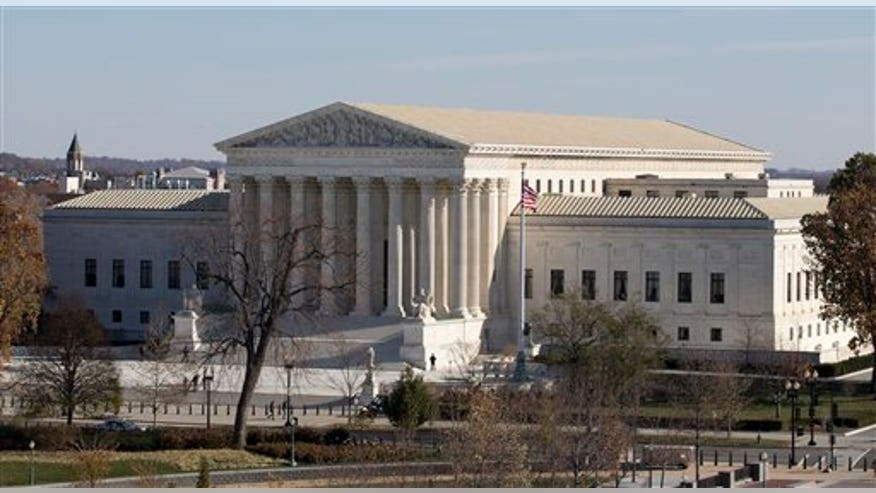
WASHINGTON – Anthony Elonis claimed he was just kidding when he posted a series of graphically violent rap lyrics on Facebook about killing his estranged wife, shooting up a kindergarten class and attacking an FBI agent.
But his wife didn't see it that way. Neither did a federal jury.
Elonis, who's from Bethlehem, Pa., was convicted of violating a federal law that makes it a crime to threaten another person.
In a far-reaching case that probes the limits of free speech over the Internet, the Supreme Court on Monday was to consider whether Elonis' Facebook posts, and others like it, deserve protection under the First Amendment.
Elonis argues that his lyrics were simply a crude and spontaneous form of expression that should not be considered threatening if he did not really mean it. The government says it does not matter what Elonis intended, and that the true test of a threat is whether his words make a reasonable person feel threatened.
One post about his wife said, "There's one way to love you but a thousand ways to kill you. I'm not going to rest until your body is a mess, soaked in blood and dying from all the little cuts."
The case has drawn widespread attention from free-speech advocates who say comments on Facebook, Twitter and other social media can be hasty, impulsive and easily misinterpreted. They point out that a message on Facebook intended for a small group could be taken out of context when viewed by a wider audience.
"A statute that proscribes speech without regard to the speaker's intended meaning runs the risk of punishing protected First Amendment expression simply because it is crudely or zealously expressed," said a brief from the American Liberties Union and other groups.
"I'm not going to rest until your body is a mess, soaked in blood and dying from all the little cuts."- lyrics posted by Anthony Elonis
But so far, most lower courts have rejected that view, ruling that a "true threat" depends on how an objective person perceives the message.
For more than four decades, the Supreme Court has said that "true threats" to harm another person are not protected speech under the First Amendment. But the court has been careful to distinguish threats from protected speech such as "political hyperbole" or "unpleasantly sharp attacks."
Elonis claims he was depressed and that his online posts under the pseudonym "Tone Dougie" were a way to vent his frustration after his wife left him and he lost his job working at an amusement park. His lawyers say the posts were heavily influenced by rap star Eminem, who has also fantasized in songs about killing his ex-wife.
But Elonis' wife testified that the comments made her fear for her life.
After she obtained a protective order against him, Elonis wrote a lengthy post mocking court proceedings: "Did you know that it's illegal for me to say I want to kill my wife?"
A female FBI agent later visited Elonis at home to ask him about the postings. Elonis took to Facebook again: "Little agent lady stood so close, took all the strength I had not to turn the bitch ghost. Pull my knife, flick my wrist and slit her throat."
Elonis was convicted of making threats of violence and sentenced to nearly four years in federal prison. A federal appeals court rejected his claim that his comments were protected by the First Amendment.
The Obama administration says requiring proof that a speaker intended to be threatening would undermine the law's protective purpose. In its brief to the court, the Justice Department argued that no matter what someone believes about his comments, it does not lessen the fear and anxiety they might cause for other people.
"The First Amendment does not require that a person be permitted to inflict those harms based on an unreasonable subjective belief that his words do not mean what they say," government lawyers said.
The National Center for Victims of Crime, which submitted a brief supporting the government, said judging threats based on the speaker's intent would make stalking crimes even more difficult to prosecute.
"Victims of stalking are financially, emotionally and socially burdened by the crime regardless of the subjective intent of the speaker," the organization said.
The case is Elonis v. United States, 13-983.

